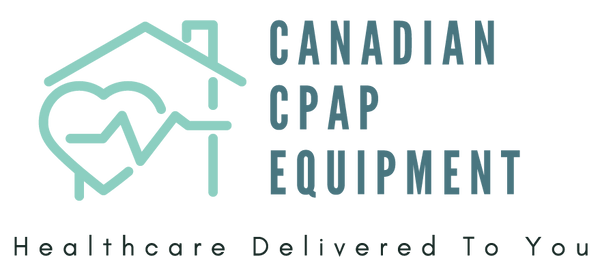If you’re wondering whether a home sleep apnea test is accurate, you’re not alone. Many people hesitate to get tested at home due to lingering myths or outdated information. The truth? Home sleep apnea tests are highly accurate when it comes to identifying the presence—or absence—of sleep apnea in individuals with symptoms and minimal other health conditions.
In this article, we’ll bust common myths, dive into the facts about testing accuracy, and help you feel confident about choosing a home sleep apnea test.
Myth #1: Home Sleep Apnea Tests Aren’t As Accurate As Lab Tests
Fact: In-lab sleep studies are more comprehensive, but that level of detail isn’t always necessary.
For individuals with common symptoms and minimal comorbidities, home sleep apnea tests (HSATs) are a highly reliable way to diagnose obstructive sleep apnea. These tests focus on the most essential indicators—like oxygen saturation, breathing patterns, and heart rate—to effectively identify sleep apnea.
A 2022 study published by the National Institutes of Health found no significant difference in AHI (Apnea-Hypopnea Index) values between home tests and in-lab polysomnography when proper screening is used. In fact, HSATs demonstrated up to 90% diagnostic accuracy in appropriate patients (source).
Myth #2: You Can’t Be Properly Diagnosed Without Sleeping in a Lab
Fact: Most people don’t need an overnight lab study to confirm sleep apnea.
While in-lab polysomnography is still preferred in complex cases (like mixed sleep apnea or multiple comorbidities), at-home tests are approved by both the AASM and Health Canada for diagnosing obstructive sleep apnea (OSA) in appropriate patients. In fact, many physicians now use home testing as the standard first-line approach.
Myth #3: Home Sleep Tests Are Too Simple to Catch Real Problems
Fact: Home sleep apnea tests do more than just monitor sleep—they use advanced technology to track the key signs of sleep apnea accurately.
Devices like the WatchPAT track multiple data points—such as oxygen levels, heart rate, respiratory effort, and total sleep time—using sophisticated algorithms. The WatchPAT even estimates sleep stages using PAT (Peripheral Arterial Tone) signals, offering a detailed, reliable assessment of your sleep health from home.
Myth #4: Home Sleep Tests Always Miss Mild Sleep Apnea
Fact: Home sleep tests are designed to detect mild, moderate, and severe sleep apnea.
While they may be most sensitive to moderate and severe cases, they can still identify mild sleep apnea or confirm its absence. If you're experiencing symptoms like loud snoring, daytime fatigue, or frequent awakenings, a home test is a reliable first step—even for mild cases.
Myth #5: Home Testing Isn’t Reliable Without a Sleep Technician Present
Fact: Home tests are designed to be simple, accurate, and self-applied without a technician present.
Most home sleep tests come with clear instructions, support resources, and are built for ease of use. They're engineered to collect accurate data without needing someone to monitor you during the night. Plus, the data is still interpreted by sleep specialists afterward.
Myth #6: You Can’t Start Treatment After a Home Sleep Test
Fact: You can begin treatment after a home sleep apnea test—if you're working with the right clinic.
As long as your test is reviewed by a qualified sleep physician and a PAP therapy prescription is issued, treatment can begin right away. In many cases, oral appliances may also be used without a prescription, depending on local regulations and clinical recommendations.
When lab access is limited, a home sleep test can speed up both diagnosis and therapy, helping you sleep better—and feel better—sooner.
Frequently Asked Questions (FAQ)
Yes, for people with common symptoms and no major health issues, home sleep apnea tests (HSATs) are highly accurate. Studies show they can match lab tests in identifying obstructive sleep apnea when proper screening is used.
Yes. While home tests are most sensitive to moderate and severe cases, they can still detect mild sleep apnea and help rule it out if your symptoms aren't apnea-related.
Yes. If your test results are reviewed by a licensed provider and you receive a prescription, treatment—like CPAP therapy—can begin right away. In some cases, oral appliances may not even require a prescription.

